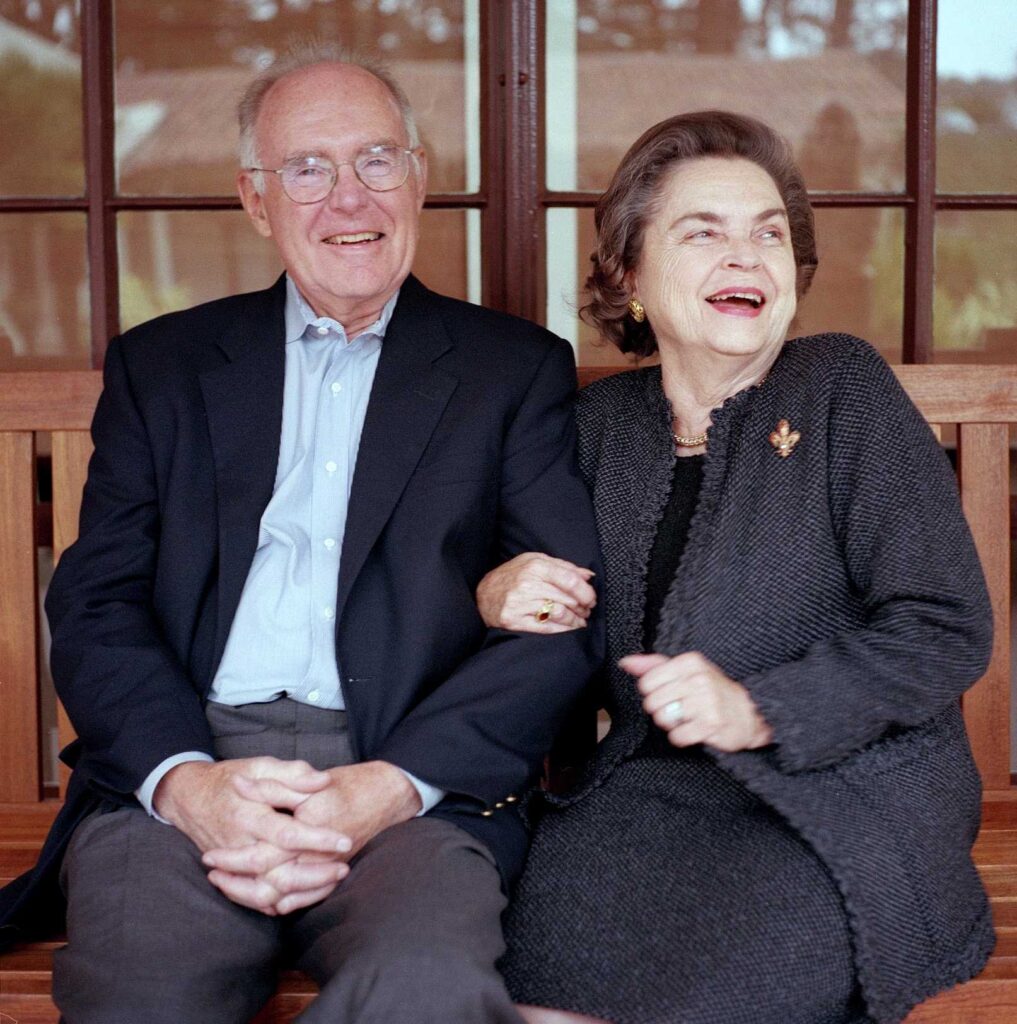Gordon Moore, the co-founder of Intel and creator of Moore’s Law, has passed away at the age of 94.
His groundbreaking observation in 1965 predicted the exponential growth of computer chip capacity and set the pace for the digital age. Moore’s legacy will continue to shape the technology industry for years to come.
The Legacy of Gordon Moore, Co-founder of Intel
Gordon Moore, a co-founder of Intel, has left a lasting legacy in the tech industry. His famous observation, known as Moore’s Law, predicted that the number of transistors on a microchip would double every 18-24 months, leading to exponential growth in computing power.
This prediction has proven to be remarkably accurate and has driven the development of the modern computer industry. In addition to his technical contributions, Moore also helped shape Intel’s corporate culture and was a strong advocate for environmental sustainability. His legacy continues to inspire innovation and progress in the technology field.
How Gordon Moore Changed the Tech Industry Forever
Gordon Moore is a name that has become synonymous with the tech industry, and for good reason. As the co-founder of Intel and the author of Moore’s Law, Moore revolutionized the way we think about computing and technology.
His prediction that the number of transistors on a microchip would double every two years led to exponential growth in computing power and has become a guiding principle for the industry. But Moore’s impact goes beyond just the law that bears his name.
His leadership at Intel and his contributions to the development of the microprocessor have helped to shape the modern tech landscape, making him a true giant in the field. Gordon Moore’s legacy will continue to inspire and influence the tech industry for years to come.
Gordon Moore’s Philanthropic Contributions
Gordon Moore, the co-founder of Intel, is not only renowned for his contributions to the tech industry, but also for his philanthropic efforts. He and his wife, Betty, have been active in charitable giving, particularly in the areas of environmental conservation, education, and scientific research.

In 2001, they established the Gordon and Betty Moore Foundation with a focus on advancing science, protecting natural resources, improving patient care, and fostering patient engagement. The foundation has funded numerous initiatives and research projects, such as the construction of the world’s largest telescope and the development of the Moore Inventor Fellows program, which supports early-career scientists and inventors.
Through his philanthropy, Gordon Moore has left a lasting impact on various fields and continues to inspire others to make a positive difference in the world.
The End of an Era: Remembering Gordon Moore
The passing of Gordon Moore, co-founder of Intel and renowned tech pioneer, marked the end of an era in the technology industry. Moore’s contributions to the field are immeasurable, and his legacy will undoubtedly continue to influence the way we live and work for generations to come. With his famous prediction, known as “Moore’s Law,” he revolutionized the semiconductor industry and set a precedent for innovation in the tech world.
Beyond his professional accomplishments, Moore was also known for his philanthropic endeavors, including the Gordon and Betty Moore Foundation, which supports scientific research and environmental conservation. As we remember the life and legacy of Gordon Moore, we honor his incredible contributions to technology and society as a whole.
Conclusion
Gordon Moore was a pioneering figure in the tech industry, co-founding Intel and making a lasting impact with his famous prediction known as “Moore’s Law”. His vision and leadership helped shape the modern world, enabling incredible technological developments that have transformed our daily lives. In addition to his contributions to the tech industry, Moore and his wife also established a foundation focused on philanthropic causes. His legacy will continue to inspire future generations of innovators and leaders.
(With inputs from ABC News)
Also Read: Is the Tesla Wireless Charger Worth the $300 Price Tag? Our Honest Review
-
What was Gordon Moore’s famous prediction?
Gordon Moore’s famous prediction, known as “Moore’s Law,” stated that the capacity and complexity of integrated circuits would double every year. This prediction has been applied to various electronic devices and has become a standard for measuring the progress and innovation of the tech industry.
-
What was Gordon Moore’s role in the founding of Intel?
Gordon Moore co-founded Intel in 1968, along with Robert Noyce. He served as the company’s executive vice president until 1975 when he became president. He later became chairman of the board and CEO, positions he held until 1987.
-
What was the Gordon and Betty Moore Foundation?
The Gordon and Betty Moore Foundation is a philanthropic organization established by Gordon Moore and his wife. The foundation focuses on a range of causes, including environmental conservation, science, patient care, and projects in the San Francisco Bay area. Since its founding in 2000, the foundation has donated over $5.1 billion to charitable causes.
-
What is Gordon Moore’s legacy?
Gordon Moore’s legacy is defined by his impact on the tech industry and his philanthropic contributions. His famous prediction, “Moore’s Law,” has become a standard for measuring the progress and innovation of the tech industry. He co-founded Intel, which has become one of the most influential tech companies in the world. Additionally, he and his wife established a foundation that has made significant contributions to charitable causes. His legacy will continue to inspire future generations of innovators and leaders.
